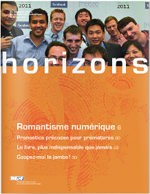Press
Grant accepted for a 4-week scientific stay
Dennise Frauendorfer received the subvention "Egalité" of the Commission Egalité des Chances of the University of Neuchâtel (Switzerland) for a four-week scientific stay (September 14 - October 11, 2013) at the Department of Psychology, School of Mind, Brain, and Behavior Department of Psychology, School of Mind, Brain, and Behavior (Dr. Matthias Mehl) at the University of Arizona, USA.
StressSense featured in The Economist
Prof. Tanzeem Choudhury discussed StressSense, an app to detect stress from smartphone sensors, in an interview with The Economist.
SONVB research was featured in Swiss National TV
Our research on analysis of nonverbal behavior in job interviews was featured in Radiotelevisione Svizzera (RSI) scientific program "Il giardino di Albert", aired on 26.05.2013.
Link to the video: RSI LA1
Link to the show: RSI LA1
Outstanding Paper Award at ICMI 2012
The paper "Linking Speaking and Looking Behavior Patterns with Group Composition, Perception, and Performance" by Dinesh Babu Jayagopi, Dairazalia Sanchez-Cortes, Kazuhiro Otsuka, Junji Yamato, and Daniel Gatica-Perez received the Outstanding Paper Award at the ACM Int. Conf. on Multimodal Interaction (ICMI) held in Santa Monica, CA, USA, October 22-26, 2012. The work was partly supported by the SNSF SONVB project, the NISHA project (with NTT, Japan), and the EU HUMAVIPS project.
StressSense -- SONVB research in ACM TechNews
Monday, August 27, 2012
The StressSense system was featured in ACM TechNews
Computer scientists have trained a system to detect stress in a person's voice. StressSense is designed to initially recognize someone's unstressed voice, then compare this recording to preprogrammed knowledge of stress-caused physiological changes, such as faster speech and clipped frequency spectrum. The prototype has a stress-recognition accuracy of 81 percent indoors and 76 percent outdoors. "We propose StressSense for unobtrusively recognizing stress from [a] human voice using smartphones," the researchers say. They note the StressSense classifier "can robustly identify stress across multiple individuals in diverse acoustic environments." The software has the potential to raise user awareness of stressful events and help them cope, says Intel's Hong Lu. The researchers demonstrated that stress from a human voice can be recognized using smartphones in indoor and outdoor conversational data, and that a universal stress model can be adapted to specific individual users. Furthermore, a stress model can be adapted to unseen environments, reducing the cost of training stress models for different situations, and the proposed stress classification pipeline can operate in real time on Android smartphones.
http://technews.acm.org/#602180
Link to original article:
Voice-stress software is put to the test
by Nancy Owano
August 22, 2012
phys.org
http://phys.org/news/2012-08-voice-stress-software.html
SONVB research on stress detection using smartphones featured in New Scientist
StressSense a smartphone-based method to infer stress from speech signals was featured in New Scientist magazine.
This research is a result of the SNSF SONVB project, a collaboration between Idiap, Cornell University, Darmouth College, and the University of Neuchatel.
Smartphone that feels your strain
Paul Marks
New Scientist
Issue 2877, 11 Aug. 2012, pp. 20.
http://www.newscientist.com/issue/2877
SONVB research on smartphone data analysis and personality traits discussed in New Scientist
Our research on the connections between Big-Five personality traits and smartphone data was featured in New Scientist magazine.
Mindreader: Facebook of revelations, Jim Giles,
New Scientist, Issue 2862, 02 May 2012, pp. 40-43.
http://www.newscientist.com/issue/2862

